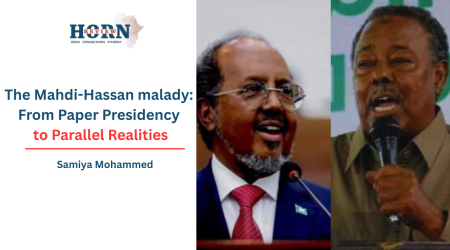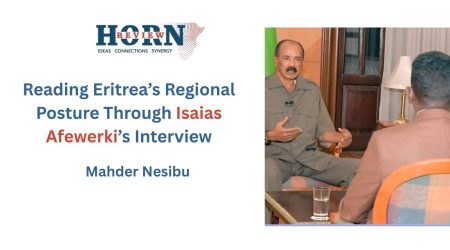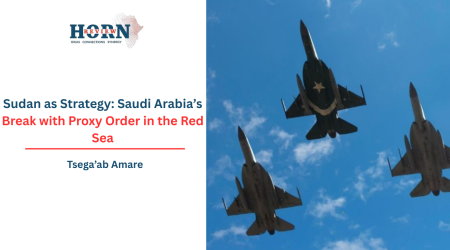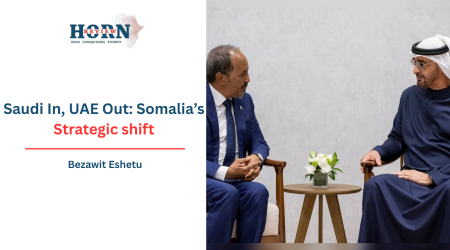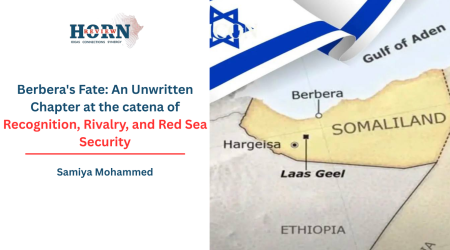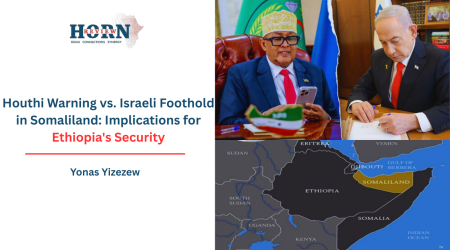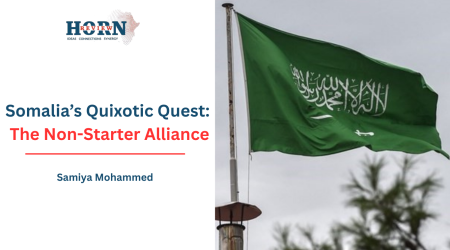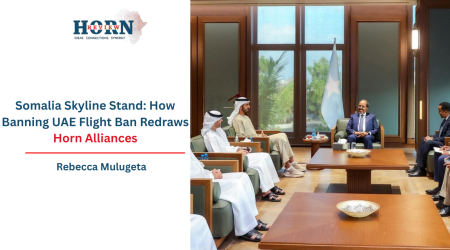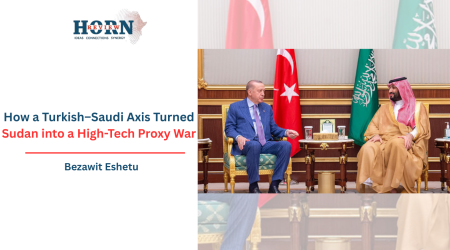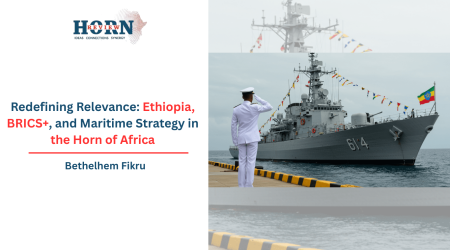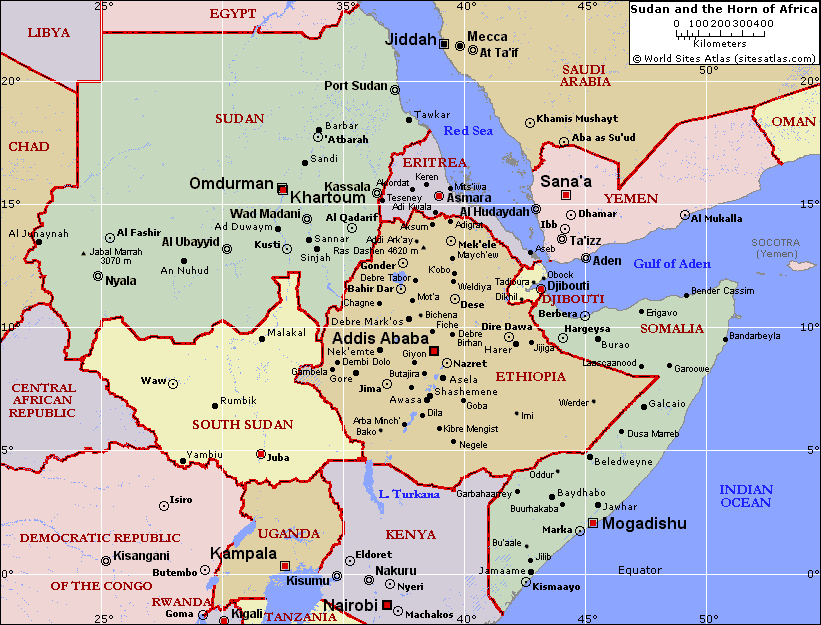
18
Apr
Strategic Realignments in the Horn of Africa: Ethiopia and the Evolving Regional Equation
The Horn of Africa continues to witness a recalibration of regional dynamics, shaped by a complex interplay of historical legacies, emergent national ambitions, and the nuanced interventions of external actors. Within this geopolitical matrix, a nascent yet fluid convergence between Egypt, Eritrea, and Somalia has surfaced, anchored in shared apprehensions about Ethiopia’s ascending regional posture. Recent developments, particularly Sudan’s diplomatic overture to Eritrea, have introduced a new variable to this equation. The question now arises: is Khartoum positioning itself to become a more active participant in this shifting constellation of interests? For Ethiopia, maintaining a principled commitment to diplomacy, mutual respect, and regional cooperation remains paramount in safeguarding both national interests and regional equilibrium.
For decades, Egypt and Eritrea have maintained a tacit strategic alignment, less a formalized alliance than a convergence of interests, particularly in relation to Ethiopia’s growing infrastructural and geopolitical assertiveness. Egypt’s enduring focus on securing its downstream water rights along the Nile, especially in light of Ethiopia’s construction of the Grand Ethiopian Renaissance Dam (GERD), has found a sympathetic counterpart in Eritrea, whose historical experience with Ethiopian dominance continues to inform its foreign policy posture. Somalia, often mired in internal fragility and oscillating between competing external influences, has intermittently aligned with this bloc. Its recent tilt became more pronounced following Ethiopia’s Memorandum of Understanding with Somaliland, an agreement to which Mogadishu responded with vehement opposition. This in turn accelerated Somalia’s drift towards the Egypt-Eritrea axis. Nonetheless, this informal alliance remains inherently brittle, held together by episodic and often transient geopolitical frictions.
The recent high-level engagement between Sudan and Eritrea, manifested in the visit of General Abdel Fattah al-Burhan, Chairman of Sudan’s Sovereign Council, to Asmara, signals a potentially significant reconfiguration. Historically, Sudan and Ethiopia have cultivated periods of close cooperation, particularly in the domains of security coordination and regional mediation. However, Sudan’s ongoing internal crisis has fractured institutional coherence and opened the door to shifting alliances. Al-Burhan’s meeting with Egypt’s intelligence chief, coinciding with reported battlefield gains by the Sudanese Armed Forces, further suggests a recalibration of Sudanese strategic priorities. The prospect of Sudan gravitating more firmly into the orbit of Egypt and Eritrea raises the stakes for regional diplomacy. A regional order configured as a zero-sum alignment against Ethiopia risks entrenching animosity, exacerbating insecurity, and undermining broader aspirations for collective prosperity and stability.
Should Sudan inch closer to this emerging bloc, mirroring Somalia’s conditional alignment, it would pose a formidable diplomatic challenge to Addis Ababa. Nonetheless, Ethiopia’s longstanding commitment to proactive diplomacy, regional integration, and multilateral engagement offers a robust foundation upon which to manage such challenges. Ethiopia’s foreign policy ethos, rooted in pragmatic dialogue and the pursuit of shared economic and security interests, provides a viable pathway for mitigating the risks posed by exclusionary regional formations. Through strategic bilateral engagements, the articulation of mutual benefits, and a forward-looking vision for a stable Horn, Ethiopia can preempt the crystallization of a hostile axis and secure its long-term regional position.
The notion that Sudan may “replace” Somalia within this informal anti-Ethiopia configuration is not without merit, but it demands careful analysis. Somalia’s geostrategic location along key maritime corridors and its protracted historical tensions with Ethiopia have rendered it a valuable, if at times unpredictable, partner for Cairo and Asmara. Sudan, by contrast, occupies a distinct geopolitical niche. While it shares an extensive and occasionally contentious border with Ethiopia and maintains its own territorial disputes, its strategic calculus has historically been more ambivalent. Nevertheless, the prevailing instability within Sudan, compounded by the influence of external actors, may well precipitate a realignment of Khartoum’s foreign policy, one increasingly attuned to efforts aimed at counterbalancing Ethiopia’s regional footprint. The ceremonious reception afforded to al-Burhan in Asmara may be read as an overture designed to consolidate Sudan’s place within this evolving trilateral framework.
Ethiopia, acutely aware of these fluid dynamics, continues to foreground diplomacy as its primary instrument of regional engagement. Though not directly cited, the ethos underpinning the “Ankara Agreement” exemplifies Ethiopia’s commitment to fostering bilateral partnerships grounded in mutual benefit and regional stability. As Eritrea and Sudan explore avenues of rapprochement, Ethiopia’s likely response will encompass a multidimensional diplomatic strategy, underscoring shared regional priorities, advocating for economic interdependence, and cautioning against the risks of allowing parochial or externally driven agendas to define interstate relations.
Within this increasingly intricate geopolitical terrain, Ethiopia does not appear as an isolated actor besieged by adversarial alignments, but rather as a potential linchpin for regional coherence. The evolving trilateral engagement among Egypt, Eritrea, and Sudan illustrates both the volatility and opportunity inherent in the Horn’s political architecture. Ethiopia’s unwavering emphasis on peaceful dialogue, cross-border collaboration, and inclusive prosperity offers a compelling counter-narrative to fragmentation. Just as the “Ankara spirit” once served as a catalyst for constructive cooperation in other geopolitical theatres, Ethiopia’s enduring commitment to regional diplomacy can illuminate a path toward a more stable and prosperous Horn. In so doing, Ethiopia positions itself not merely as a participant in the Horn’s evolving equation, but as a principal architect of a more resilient and forward-looking regional order, one anchored not in fleeting alliances, but in the enduring strength of collective aspiration.
By Bethelhem Fikru, Researcher,Horn Review

